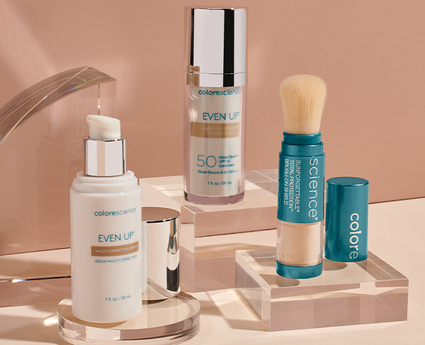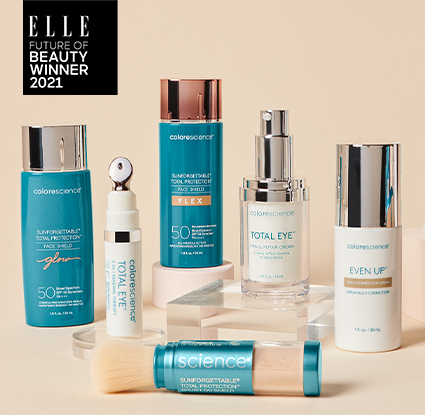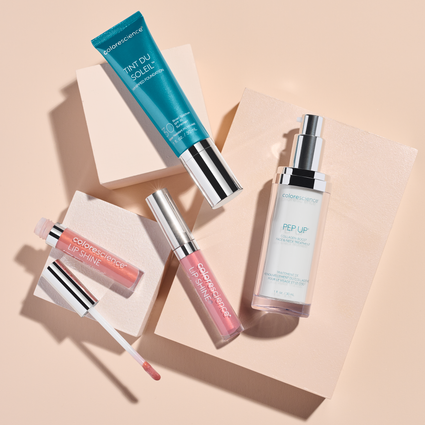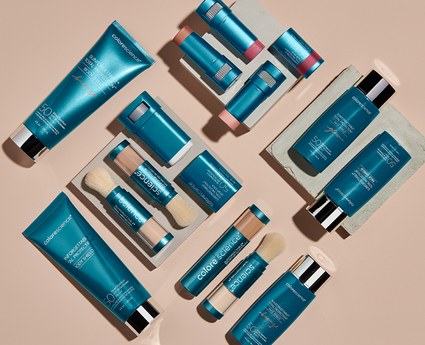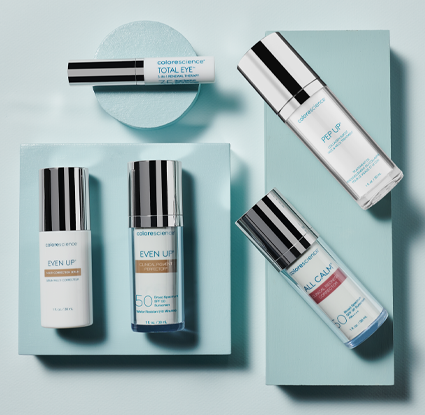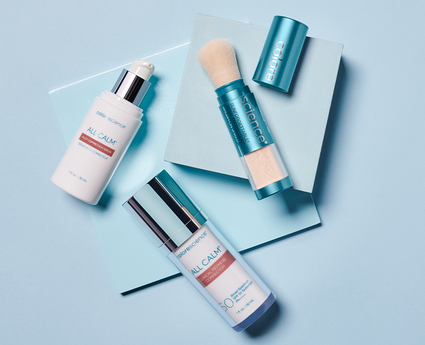Does Sunscreen Block Vitamin D? Debunking the Myth
But what about when you put on sunscreen? Will sunscreen block vitamin D?
To answer this question succinctly: No, sunscreen won’t block vitamin D. The benefits of using sunscreen far outweigh any belief that sunscreen blocks vitamin D. Studies have actually shown that people who use sunscreen on a consistent basis will maintain healthy vitamin D levels, while still getting adequate sun protection.
Not wearing sunscreen can lead to irreversible skin damage, like early signs of aging and skin cancer. So while you might be tempted to skip the sunblock as a way to get more vitamin D, you should always put on sunscreen before leaving the house.
In this blog post, we’ll be discussing everything there is to know about sunscreen and vitamin D absorption. We’ll be answering questions like “does sunscreen block vitamin D?” and “why should you use sunscreen every day?”. Continue reading the blog post from start to finish for a comprehensive understanding of the importance of sunscreen and vitamin D, or use the links below to go straight to a particular section.
- Does Sunscreen Block Vitamin D Absorption?
- Understanding Vitamin D Levels
- Why You Should Use Sunscreen Every Day
Does Sunscreen Block Vitamin D Absorption?
So, does sunscreen block vitamin D absorption?
No, it does not. Technically, sunscreen blocks UVB rays but there is no evidence that suggests that sunscreen hinders the body’s ability to produce enough vitamin D. When you don’t wear sunscreen, you leave yourself susceptible to UVB damage, which can cause sunburn and can even lead to skin cancer. Even though UVB wavelengths have been found to trigger vitamin D production, there is still no valid evidence that suggests wearing sunscreen causes vitamin D deficiency.
This being said, you can wear daily sunscreen and still get enough vitamin D to build strong bones and function properly. Several observational studies have shown that in real life settings, sunscreen does not cause a vitamin D deficiency and should still be worn on a regular basis.

The amount of sunscreen that you wear can also play a role in your body’s ability to absorb vitamin D. The different SPF levels of sunscreen provide different amounts of sun protection. For example, a sunscreen with SPF 15 will filter out 93 percent of UVB rays, while a sunscreen with SPF 30 will filter out 97 percent.
But your body doesn’t actually need that much sun exposure to produce vitamin D. In fact, 10 to 15 minutes of sunlight a couple of times a week is more than enough for your body to produce enough vitamin D to remain healthy.
Does Mineral Sunscreen Block Vitamin D?
With more people choosing mineral sunscreen for their sun protection, a common followup question to “does sunblock block vitamin D?” is “is that true for mineral sunscreen?”. There are several different types of sunscreen that you can use on your body to provide sun protection, such as mineral sunscreen and chemical sunscreen.
Mineral sunscreen contains ingredients like zinc oxide and titanium dioxide and physically sits on the skin’s surface to stop UV rays from penetrating the skin. Mineral sunscreens are generally a safer option and are a good alternative for people with sensitive skin. They also provide immediate protection from the sun and can be easily applied on top of makeup or combined with other skincare products.

Colorescience carries broad-spectrum mineral sunscreen that protects against both UVB and UVA rays. You should always use broad-spectrum sunscreen, as it provides the most protection from sun rays and helps prevent skin cancer and early skin aging.
Not wearing sunscreen increases your risk of skin cancer and sunburn, causes skin discoloration, like hyperpigmentation and sun spots, leads to wrinkles and other signs of aging, and can make your skin appear leathery due to a lack of elasticity.
In order for your skin to remain healthy, it’s imperative to wear the right type of sunscreen every single day. Fortunately, you can find an array of safe, natural options from Colorescience that make it easy to integrate sunscreen use into your daily routine.
Understanding Vitamin D Levels
A person can have different levels of vitamin D in their body. According to the Skin Cancer Foundation, here’s what your vitamin D levels mean:
- Below 30: If your levels are below 30, you’re not getting nearly enough vitamin D and you should discuss taking supplements with your doctor.
- 30 to 50: If your levels are between 30 to 50, you’re getting a generally adequate amount of vitamin D for your bones and overall health.
- 50 and above: If your levels are above 50, you’re getting an adequate amount of vitamin D but you should refrain from getting more.
- 125 and above: If your levels are above 125, you’re getting too much vitamin D and it could cause adverse effects.

Factors That Impact Your Vitamin D Levels
There are various factors, above and beyond sunscreen, that can impact a person’s vitamin D levels. For example, where you live can play a big role in your vitamin D levels. If you live somewhere that’s generally cold and further away from the Equator, you’re less likely to get sufficient amounts of vitamin D in the winter and you may have to take supplements.
Air quality can also impact your vitamin D levels. Carbon particles in the air due to fossil fuels and wood burning can reduce vitamin D production. The color of your skin plays a role as well. Lighter-skinned people will generally need less UVB exposure to produce vitamin D than darker-skinned people, as they have less melanin in their skin.
Weight and age can also impact your vitamin D levels. Some studies have shown that being overweight makes it more difficult to produce vitamin D. Older people are also more susceptible to vitamin D deficiency than younger people.
Maintaining Healthy Vitamin D Levels
Maintaining healthy vitamin D levels is important for your bones and overall health. But there are other ways you can get vitamin D, aside from sun exposure. You can get vitamin D by eating certain foods, such as fatty fish, egg yolks, milk, cod liver oil, and orange juice.
And if you’re not able to get enough vitamin D through your diet, you can also take supplements. Vitamin D supplements are a great way to make sure you maintain healthy vitamin D levels. Just make sure you discuss taking supplements with your doctor prior to starting so you can figure out what the right dosage is for you.

Why You Should Use Sunscreen Every Day
So now that we’ve answered the question of “does SPF block vitamin D?”, let's discuss why you should wear sunscreen every day.
There are many benefits of wearing sunscreen every day, such as:
- Cancer prevention
- Protection from sunburn
- Reduced sun damage
- Maintaining healthy, youthful-looking skin
And if you’re worried that wearing sunscreen will diminish your levels of vitamin D—don’t be! Research suggests that sunscreen doesn’t lead to vitamin D deficiency, and you should keep lathering it on every single day.
But in addition to putting on sunscreen daily, it’s also important to reapply sunscreen often. You should reapply your sunscreen at a minimum of every two hours, and if you’re swimming or sweating, every 80 minutes.

Above all else, wearing sunscreen daily should be a priority, and if you’re still worried about your vitamin D levels, you should follow the above tips for getting sufficient vitamin D in other ways.
What Kind of Sunscreen Should You Use?
Colorescience offers a wide range of different types of sunscreen products that you can use every day for quality sun protection. We carry sunscreen products that come in different formulas, like a powder sunscreen and a sport stick sunscreen, so you can easily find something that works for your lifestyle.
Some of the mineral sunscreen options that you’ll find from Colorescience include:
- Sunforgettable® Total Protection™ Brush-On Shield SPF 50
- Designed with EnviroScreen® Technology to protect against UVA/UVB rays, blue light, pollution, and infrared radiation
- Has an SPF of 50
- Powder formula with a brush applicator so it’s easy to take and apply on the go
- Made with zinc oxide 22.5% and titanium dioxide 22.5%
- Water resistant for up to 80 minutes
- Reef safe
- Cruelty free
- Non-nano
- Sunforgettable® Total Protection™ Face Shield Flex SPF 50
- Designed with EnviroScreen® Technology to protect against UVA/UVB rays, blue light, pollution, and infrared radiation
- Lightweight mineral sunscreen with tinted color coverage to even skin tone
- Made with zinc oxide
- Water resistant for up to 40 minutes
- Reef safe
- Cruelty free
- Non-nano
- Sunforgettable® Total Protection™ Sport Stick SPF 50
- Designed with EnviroScreen® Technology to protect against UVA/UVB rays, blue light, pollution, and infrared radiation
- Comes in a stick so it’s easy to use for sports purposes or when you need to apply in a hurry
- Has an SPF of 50
- Made with zinc oxide 13.5%
- Water resistant for up to 80 minutes
- Reef safe
- Cruelty free
- Non-nano
- Sunforgettable® Total Protection™ Body Shield Classic SPF 50
- Designed with EnviroScreen® Technology to protect against UVA/UVB rays, blue light, pollution, and infrared radiation
- Can be used on the entire body
- Made with zinc oxide 12%
- Has an SPF of 50
- PA+++
- Water resistant for up to 80 minutes
Making Sure You Get Sufficient Sun Protection
Now you can breathe easy knowing that we’ve answered “does sunscreen block vitamin D?” with a resounding “no” and feel confident when you apply sunscreen. Getting sufficient sun protection is crucial for the sake of your skin and your overall health. Not wearing enough sunscreen will make you more susceptible to sun damage, which can lead to early signs of aging and even skin cancer.
The easiest way to make sure you put on sunscreen every day is to make it part of your daily routine. If you add sunscreen into your skincare routine, it’ll become an easy habit to maintain. And if you’re not sure which sunscreen is right to use for you, you can’t go wrong with one of our safe, protective mineral sunscreens.
Colorescience is here to make putting on sunscreen so easy, you’ll never go a day without it again. Shop our selection now to find face and body sunscreens that you can trust to help keep your skin healthy.

